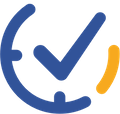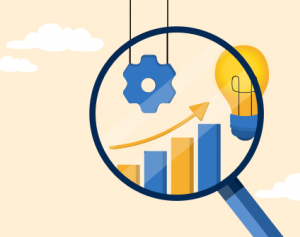Productivity has always been a significant problem in the constantly changing world. Sometimes, we need a little push in the right direction to get started. By learning and applying the right studies conducted by researchers, you’ll have a better chance of increasing your productivity. To help you get started, we’ve put together a list of the best productivity studies to help you get the most out of your day.
The Power of Solitude
While collaboration is often considered essential for productivity, research from the University of Calgary suggests that working alone may actually lead to better performance. Dr. Tim Welsh, a researcher from the Faculty of Kinesiology, found that individuals working on a specific task are slowed down when they can see someone performing a different task nearby. This effect occurs due to our built-in response-interpretation mechanism, which causes us to automatically imagine ourselves performing the task we observe.
The study involved participants performing a simple computer task alone, then with a partner doing a different but related task, and finally alone again after being told the partner would continue the task in another room. Results showed that when participants could see their partner performing the task, it interfered with their own performance, causing them to work more slowly. However, when the partner left the room and participants could only see the results of the partner’s actions, the interference effect disappeared and performance improved.
These findings have potential implications for workplace design. In situations where speed and accuracy are crucial, it may be beneficial to create work environments where people can work in isolation or alongside others performing very similar tasks. This approach could remove the involuntary modeling of others’ behavior, potentially improving both speed and accuracy. However, it’s important to note that this doesn’t mean eliminating collaboration entirely, but rather finding a balance that optimizes productivity for different types of tasks.

Stress: The Double-Edged Sword of Productivity
We all know stress can be detrimental, but the relationship between stress and productivity is more nuanced than you might think. Research from the University of California, Berkeley, has revealed that short bursts of acute stress can actually enhance cognitive function and memory. However, chronic stress has the opposite effect, leading to a significant decline in overall work output.
The researchers discovered a fascinating neurological mechanism behind this phenomenon. Short-term stress triggers the release of neurotransmitters like norepinephrine, temporarily sharpening focus and boosting information processing. In contrast, prolonged stress exposure elevates cortisol levels, impairing brain function and causing physical changes in the hippocampus, a region crucial for memory and learning. This highlights the importance of not only managing stress but also understanding its different forms and their impacts on cognitive abilities.
Learn to harness “good stress” while developing robust strategies to manage long-term stressors. This might involve reframing challenging tasks as exciting opportunities for growth, setting realistic deadlines to create motivating time pressure, and implementing regular stress-reduction practices like mindfulness or exercise to counteract the negative effects of chronic stress.
Autonomy: The Hidden Productivity Booster
The study examined how increased autonomy affects productivity and mood. With 100 participants, researchers measured physiological effort while participants watched a video about workplace autonomy or workflow management software. Results showed that those who watched the autonomy video had a 5.2% productivity boost and a 31% increase in positive mood. This indicates that feeling autonomous at work can improve both performance and emotional well-being, though the exact reasons are still unclear.
The study also found that intrinsic motivation and effort are key to productivity. Productivity was linked to the effort participants put into tasks, regardless of the video they watched. Higher intrinsic motivation further boosted performance. Additionally, productivity itself improved mood, supporting the idea that completing work tasks enhances positive emotions. These findings highlight the complex relationship between autonomy, effort, motivation, and mood in the workplace.
To boost autonomy at work, give employees more control over their tasks. Allow them to make decisions and find creative solutions independently through flexible schedules, remote work, and self-directed projects. This fosters a trusting environment, enhancing productivity and job satisfaction. Balance autonomy with support to ensure employees have the resources they need while feeling trusted to manage their responsibilities.
The Goldilocks Principle of Office Temperature
Finding the perfect office temperature isn’t just about comfort – it’s a productivity powerhouse. A fascinating study from Cornell University discovered that workers in offices kept at 77°F (25°C) made 44% fewer typing errors and were able to type 150% more than their counterparts in a 68°F (20°C) environment.
The study also revealed some unexpected gender differences in temperature perception and its impact on cognitive performance. Women, on average, performed better on math and verbal tasks at higher temperatures, while men showed slight improvements in performance at lower temperatures. This suggests that the ideal office temperature may vary depending on the gender composition of the workforce. Additionally, the researchers found that the effects of temperature on productivity were not linear – there’s a sweet spot beyond which further increases in temperature began to negatively impact performance, highlighting the importance of finding the right balance.
Tip: Don’t be afraid to advocate for temperature adjustments in your workspace – the data is on your side. Consider proposing a flexible temperature policy that allows for adjustments throughout the day or in different areas of the office to accommodate diverse preferences and optimize overall team productivity.

The Cognitive Benefits of Power Napping
Napping isn’t just for lazy Sundays. A groundbreaking NASA study found that a 26-minute nap improved pilot performance by 34% and overall alertness by 54%. Even more intriguing, a Harvard study showed that a 60-90 minute nap could boost creative problem-solving abilities by up to 40%.
But the benefits of napping extend beyond immediate performance boosts. Research from the University of California, Riverside, revealed a fascinating link between napping and long-term cognitive health. The study found that regular nappers showed improved performance on cognitive tests over time, with benefits persisting even years later. Brain imaging showed that consistent napping was associated with increased connectivity in regions responsible for memory consolidation and attention regulation. This suggests that incorporating naps into your routine could not only enhance daily productivity but also help maintain cognitive sharpness as you age.
If your workplace allows it, try incorporating a strategic power nap into your daily routine. For those in less nap-friendly environments, advocate for a “nap room” or flexible break policies by presenting the compelling scientific evidence on napping’s productivity benefits. Tthe key is to time your naps correctly – aim for either a short 20-30 minute power nap or a full 90-minute sleep cycle to avoid grogginess and maximize benefits.
The Mozart Effect 2.0: Music and Cognitive Performance
The connection between music and productivity is more intricate than once believed. Research from Stanford University reveals that music, particularly baroque classical music at 60 beats per minute, can enhance brain functions related to attention and processing speed, especially when played at a barely perceptible volume.
Further studies indicate that the influence of music on productivity depends significantly on the task and individual differences. According to the Journal of Experimental Psychology, background music can improve performance on simple, repetitive tasks but may hinder complex problem-solving or learning new information. Interestingly, the “Mozart effect for millennials” emerged, showing that individuals performed better cognitively when listening to music they enjoyed, regardless of the genre. This suggests that the productivity boost from music is linked to positive emotions and personal preferences, rather than specific musical characteristics alone.
Create a playlist of baroque classics and play it at a low volume during your next work session. Additionally, try curating personalized playlists for different types of tasks – upbeat tracks for routine work, ambient sounds for creative tasks, and perhaps silence for complex problem-solving. Pay attention to how different music affects your mood and productivity, and don’t be afraid to adjust your audio environment throughout the day to match your changing cognitive needs.

These studies offer a fresh perspective on productivity, challenging long-held assumptions and providing actionable insights. By incorporating these evidence-based strategies into your work routine, you can unlock new levels of efficiency and creativity. Productivity isn’t about working harder – it’s about working smarter. So, which of these surprising findings will you put into practice first?




